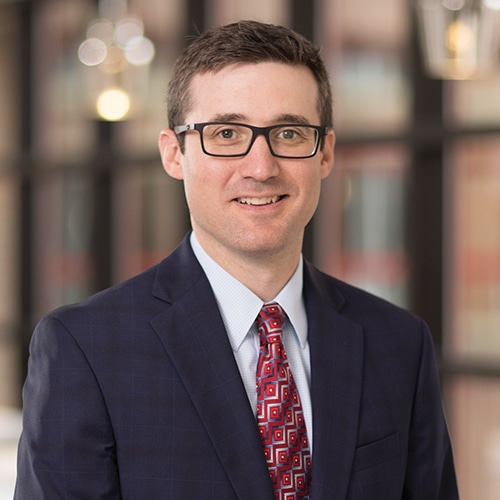The Michigan Court of Appeals recently published a new opinion clarifying expert qualification for nursing experts and the standard applicable to a request for permission to disclose a new expert following a ruling that the party’s timely disclosed expert is unqualified. Cox v Hartman, ___ Mich App ___; ___NW2d ____ (2017) (Docket Nos 333849, 333994).
In Hartman, the plaintiffs asserted birth trauma claims against Eric Hartman, MD, Tracey MacGregor, RN and Port Huron Hospital. The Plaintiffs disclosed Claudia Beckmann, RN as their sole nursing expert. Nurse Beckmann provided deposition testimony establishing that she possessed certification as a nurse practitioner and devoted greater than fifty percent of her professional time to clinical instruction of nurse practitioner students during the year prior to the alleged malpractice. Defendants MacGregor and Port Huron Hospital filed a motion to strike Nurse Beckmann as an expert contending that she did not devote a majority of her professional time to the practice or instruction of labor and delivery nursing during the year prior to the alleged malpractice as required by MCL 600.2169(1)(b). The trial court granted the motion and awarded summary disposition to both defendants due to the plaintiffs’ lack of qualified nursing expert. The plaintiffs filed a motion requesting leave to disclose a new expert four days after the court’s order granting summary disposition. The trial court denied the motion as untimely and prejudicial to the defendants.
On appeal, the Hartman panel affirmed the trial court’s ruling that a nurse practitioner and registered nurse practice in different “health professions” for purposes of qualification under MCL 600.2169(1). Therefore, the time Nurse Beckmann spent in the clinical instruction of nurse practitioner students did not count as “qualifying time” under MCL 600.2169(1)(b). The panel found that a “health profession” for purposes of MCL 600.2169(1)(b) “may be determined by reference to a license or a registration, and a registration includes a specialty certification.” Since specialty certification is available to a nurse practitioner, it is a separate health profession from general nursing for purposes of MCL 600.2169(1)(b). The same analysis will apply to future cases involving nurse anesthetists and nurse midwives.
The Hartman panel also affirmed the trial court’s denial of the plaintiffs’ untimely motion for leave to disclose a new nursing expert. Significantly, the panel cited to the “good cause” standard provided in MCR 2.401(I)(2) and found that it was “plaintiff’s burden to demonstrate good cause for the late addition of a new expert witness.” While the panel did not offer an explicit definition of “good cause” under MCR 2.401(I)(2), it suggested that the party seeking a late amendment must “provide an adequate explanation” for the late disclosure. The panel also suggested that the trial court should consider whether the opposing party would suffer prejudice from the late amendment. The confirmation of the applicability of a good cause standard in the context of a request for leave to disclose a new expert to replace a timely disclosed but unqualified expert in a published opinion is potentially significant. Parties often cite a more lenient standard commonly known as the “Dean analysis” to support requests for permission to disclose a new expert. While the Hartman panel did not offer significant insight regarding the meaning of “good cause,” the opinion will be helpful in responding to future motions for leave to disclose a new expert in the context of a motion to strike a timely disclosed expert.
More Publications



